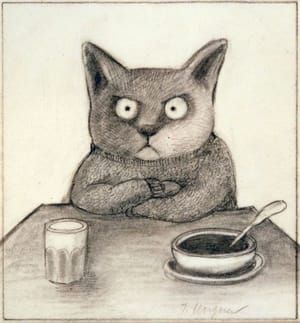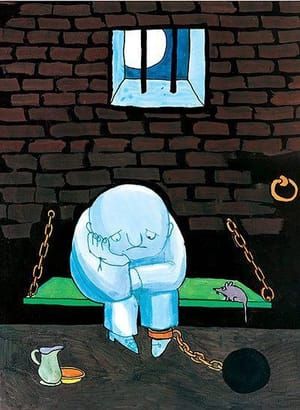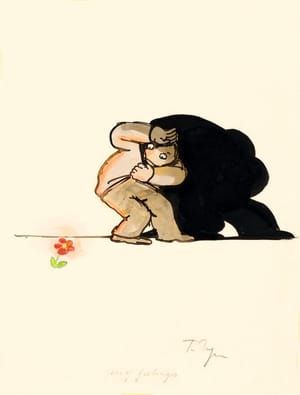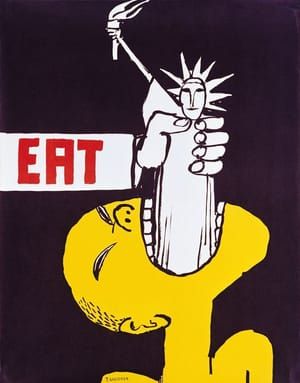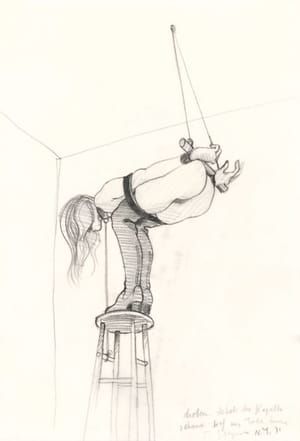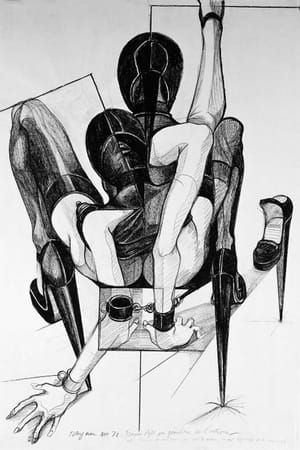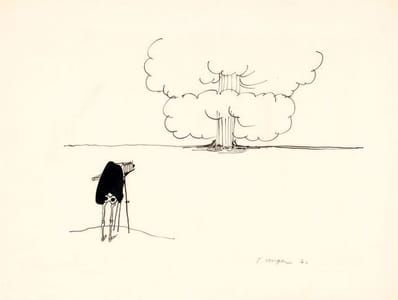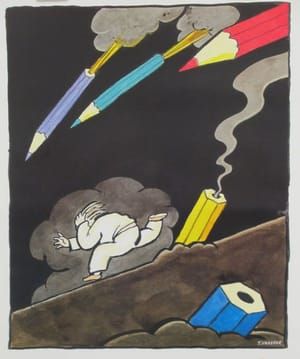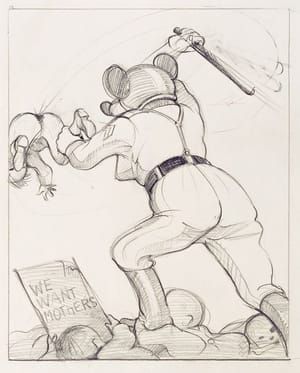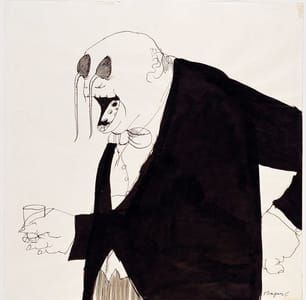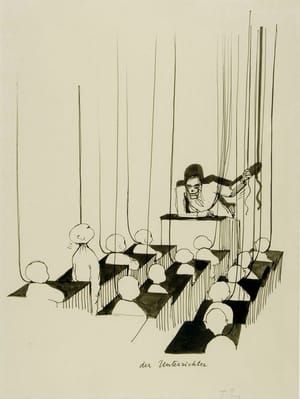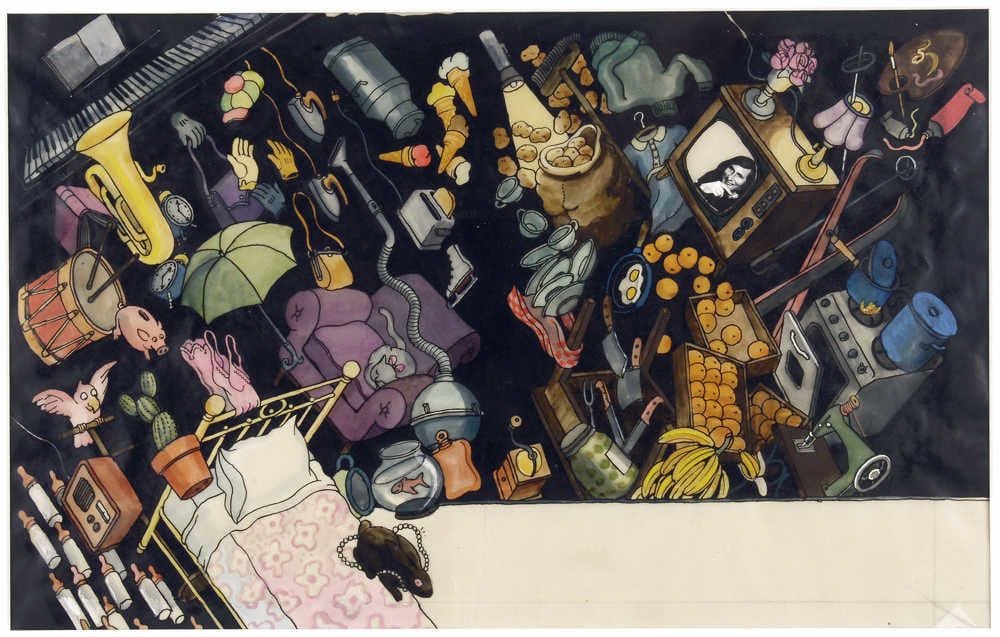

Untitled (drawing for Allumette), 1974
Tomi Ungerer
Collection Musée Tomi Ungerer, Centre international de l’Illustration, Strasbourg © Tomi Ungerer/Diogenes Verlag AG, Zürich.
I really believe that if one has a talent, it has to be put to use. Allumette is about the miseries of the third world, Otto is about the Shoah, about persecution, making friends, about acceptance of immigrants in a neighborhood, and things like this. I’ve always been busy against violence and injustice. Culture knows no breaches. Culture is something that can be shared by anyone. I’ve been very active promoting other artists. A lot of energies went to that. When I arrived in Ireland, I got death letters, menaces from French patriots calling me a “dirty German.” And I thought, “I must be.” But instead of ending up in jail, I’ve been covered with decorations. I’ve been collecting my medals without even asking for it.
(http://bombmagazine.org/article/2359112/tomi-ungerer)
Allumette; A Fable, with Due Respect to Hans Christian Andersen, the Grimm Brothers, and the Honorable Ambrose Bierce, by Tomi Ungerer, was originally published in 1974. It is a "reimagining" of "The Little Match Girl" by Hans Christian Andersen. The book's extended title references Andersen, for "The Little Match Girl", as well as fairy tale authors the Brothers Grimm, and satirist Ambrose Bierce. The book was initially published in 1974, and carried in the US by Parents' Magazine Press and Scholastic, both bargain retailers. It was also briefly reprinted in 1986, but has since gone out of print again.
Unlike the Anderson tale, the book's heroine, Allumette, does not die a death in the cold. Rather, she gets everything she has ever wished for—and uses the power of that original wish to effect the betterment of society as a whole.
Ungerer's illustrations help form the world of Allumette, who lives in a dump surrounded by abandoned cars and playful rats. This stands in contrast with illustrations of the wealthy and powerful, shown pampered and with material possessions beyond rationality. Both in illustrative style and tone, the book is reminiscent of Maurice Sendak, particularly books such as In The Night Kitchen and We Are All in the Dumps with Jack and Guy.
The book begins:
Summer and winter, spring and fall,
Allumete dressed in rags.
She had no home. She had no parents.
(https://en.wikipedia.org/wiki/Allumette:_A_Fable)
Uploaded on Apr 21, 2017 by Suzan Hamer
Tomi Ungerer
artistArthur
Wait what?
